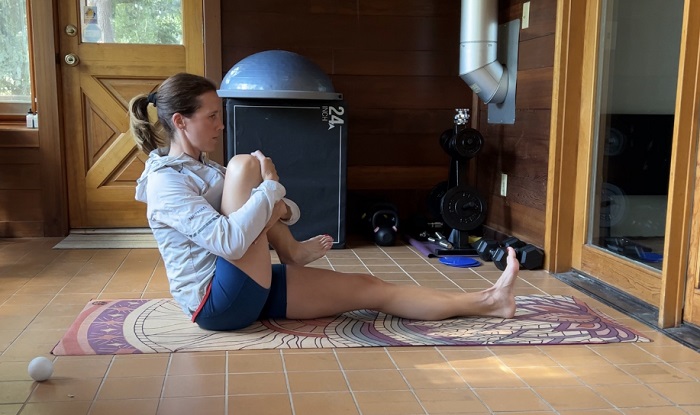Marathon Training Secrets For New Runners
Unlock the secrets of marathon training for new runners with these expert tips and techniques. If you are just starting out in your marathon journey, these training secrets will help you reach your goals successfully.
Whether you’re aiming to complete your first marathon or improve your performance, implementing these strategies can make a significant difference in your training progress. From setting realistic goals to incorporating strength training and proper nutrition, these tips cater specifically to new runners embarking on their marathon training adventure.
By following these secrets, you can enhance your endurance, prevent injuries, and ultimately achieve your marathon aspirations. Let’s delve into the key components that will pave the way for your marathon success.
Setting Goals
Setting goals is a crucial aspect of marathon training for new runners. By establishing clear objectives, you can chart a successful path towards your race day. From choosing the right distance to setting realistic time goals, here are some key strategies for setting effective and achievable goals in your marathon training journey.
Choosing The Right Distance
When selecting the distance for your marathon, consider your current running abilities and any prior experience. Opt for a distance that challenges you, but is also attainable with dedicated training. For beginners, a shorter distance such as a half marathon or 10K may be a more realistic starting point, allowing you to gradually build up to longer races.
Setting Realistic Time Goals
As a new runner, it’s important to set realistic time goals that align with your current fitness level. Aim to improve your personal best rather than comparing yourself to experienced runners. By focusing on steady progress and incremental time improvements, you can build confidence and avoid unnecessary pressure.

Credit: m.youtube.com
Building A Training Schedule
When starting your marathon training journey, building a proper training schedule is essential to your success. A well-structured plan ensures gradual progress and minimizes the risk of injuries.
Determining Training Frequency
To determine training frequency, consider your current fitness level and availability. A good starting point for beginners is to aim for 3-4 training days per week.
Balancing Rest And Workouts
Rest is equally important as workouts in your training schedule. Proper recovery time allows your muscles to repair and grow stronger. Aim for 1-2 rest days each week.
Essential Training Techniques
When you are new to marathon training, mastering essential techniques is crucial for your success.
Interval Training For Speed
Interval training involves alternating between high-intensity bursts of running and periods of rest or lower-intensity activity.
Long Runs For Endurance
Long runs help to build stamina for the marathon distance, gradually increasing mileage to improve endurance.

Credit: www.all-about-marathon-training.com
Nutrition And Hydration
Nutrition and hydration play a crucial role in the success of marathon training. Designing a balanced diet and implementing effective hydrating strategies are essential for new runners to perform at their best and avoid fatigue and injury. Let’s discover how to optimize your nutrition and hydration for marathon training success.
Designing A Balanced Diet
A balanced diet is key for marathon training. It should consist of carbohydrates, protein, healthy fats, and a variety of vitamins and minerals. Here’s a suggested breakdown of macronutrients for new runners:
| Nutrient | Percentage of Daily Caloric Intake |
|---|---|
| Carbohydrates | 50-60% |
| Protein | 15-20% |
| Healthy Fats | 20-30% |
Additionally, ensure good sources of iron, calcium, and vitamin C are included in your diet to support overall health and performance during training.
Hydrating Strategies
Proper hydration is vital for runners. Here are some strategies to maintain optimal hydration during marathon training:
- Drink plenty of water throughout the day, aiming for at least 8-10 cups.
- Consume electrolyte-rich fluids during and after long runs to replenish minerals lost through sweat.
- Monitor urine color – aim for a pale yellow color, indicating adequate hydration.
Balance your nutrition and hydrate effectively to fuel your body for marathon training success as a new runner.
Injury Prevention
Discover the marathon training secrets to prevent injuries for new runners. With these valuable tips, you can avoid common pitfalls and achieve your fitness goals safely and effectively.
Proper Warm-up And Cool-down
When it comes to injury prevention in marathon training, a proper warm-up and cool-down are essential. A warm-up not only helps to prepare your body for the demands of running, but it also reduces the risk of injury. In order to warm up effectively, start with some light aerobic exercises like jogging in place or brisk walking for about 5 to 10 minutes.
Next, incorporate dynamic stretches, such as leg swings, high knees, or walking lunges, to activate your muscles and increase flexibility. These movements not only help to loosen up your joints and improve your range of motion, but they also promote blood flow to your muscles, ensuring they are well-nourished and ready for the run.
After completing your marathon training run, it is equally important to incorporate a proper cool-down. Cooling down allows your heart rate and breathing to gradually return to normal, preventing any sudden changes that could lead to dizziness or fainting. In addition, it helps to flush out metabolic waste products, reducing muscle soreness and aiding in recovery.
A cool-down should consist of light aerobic exercise, such as a slow jog or brisk walk, followed by static stretches that target the major muscle groups. Holding each stretch for about 20 to 30 seconds allows the muscles to relax and lengthen, improving flexibility and preventing tightness.
Strength Training And Cross-training
In addition to warm-ups and cool-downs, incorporating strength training and cross-training into your marathon training routine can significantly reduce your risk of injuries. Strength training helps to build muscular strength and endurance, thereby improving overall running performance and reducing the risk of muscle imbalances and overuse injuries.
Include exercises that target the major muscle groups, such as squats, lunges, deadlifts, and core exercises. Aim for at least two strength training sessions per week, focusing on exercises that improve your running form and stability.
Aside from strength training, cross-training activities like cycling, swimming, or yoga can provide numerous benefits for injury prevention. These activities allow you to engage in low-impact movements that work different muscle groups and provide active recovery for your running muscles.
By incorporating regular cross-training sessions into your training routine, you can reduce the risk of overuse injuries, maintain cardiovascular fitness, and improve overall body strength and flexibility.

Credit: runeatrepeat.com
Frequently Asked Questions For Marathon Training Secrets For New Runners
How Should I Start Training For A Marathon As A New Runner?
To start training for a marathon as a new runner, begin by gradually increasing your running distance and intensity while also incorporating strength and cross-training exercises to build endurance and prevent injuries.
What Is The Recommended Weekly Mileage For Marathon Training?
The recommended weekly mileage for marathon training varies depending on your fitness level and experience. However, gradually increasing your mileage to reach around 40-50 miles per week is generally advised for optimal marathon preparation.
How Important Is Rest And Recovery During Marathon Training?
Rest and recovery are crucial during marathon training as they allow your body to repair and adapt to the stress of the workouts. Incorporate rest days into your training schedule and prioritize getting enough sleep to prevent fatigue and reduce the risk of injuries.
Conclusion
Incorporating these marathon training secrets into your running routine can help you make significant progress and achieve your goals. By focusing on proper nutrition, cross-training, and rest, you can enhance your performance and minimize the risk of injury. Consistency and patience are key, so keep pushing yourself and enjoy the journey towards marathon success.






